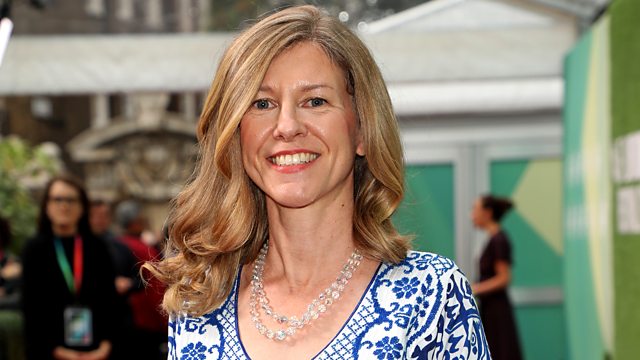The year is 2003. You’re working in intelligence at GCHQ. As part of your work translating Mandarin, you receive an email that shocks you. You understand it to be asking Britain to work with America to listen into the private communications of UN ambassadors, and use this information to rig the UN vote towards going to war with Iraq.
Would you continue with your job, putting aside any concerns over the immoral blackmail asked in the email? Or would you release this information into the public eye, in an attempt to prevent a war? Would you break the Official Secrets Act and choose truth over everything else?
This ‘question of loyalty and a crisis of conscience’ is exactly the position Katharine Gun was in. Her story has now been made into the film Official Secrets, directed by Gavin Hood, and starring Kiera Knightley. The film asks the audience to consider what we would have done in Katharine’s position. It tracks Katharine’s difficult decision to release the email and break the Official Secrets Act, the journalists at The Observer newspaper deciding to publish it (like Martin Bright, portrayed by Matt Smith), and the Liberty Lawyers (in particular Ben Emmerson, played by Ralph Fiennes) defending Katharine in her court case. Katharine explained it had ‘never occurred’ to her she might ever feel she must break the Official Secrets Act, ‘I guess I was naive.’ She chose to speak out on the basis that the war was ‘unjustified and catastrophic’ and that ‘the operation itself was illegal according to the Geneva Conventions’.
As portrayed in the film, Katharine aimed to remain anonymous, and therefore did not discuss her decision to whistle blow with any of her loved ones. She explained that during this time ‘[she] felt very alone, with a huge burden on [her] shoulders.’ However, Katharine chose to own up to her actions, when interrogations of her colleagues began at GCHQ. After many months of tension, the government astonishingly dropped all charges against her during her trial. I asked Katharine how this felt, no longer facing imprisonment and yet suddenly being unable to put the war itself on trial and challenge governmental corruption. She replied, ‘It is funny, I felt simultaneously overjoyed, overwhelmed and disappointed.’ Despite the time she has needed to heal from the trauma, Katharine explained how ‘my conscience is clear, I feel vindicated’- whistleblowing is not something she regrets.
Although the Iraq war did go ahead, Katharine managed to prevent UN support of the war. A particularly potent scene in the film is when Katharine is watching the first bombs drop in Iraq on the TV with her husband. They used the actual broadcasted footage in the film. Katharine described this moment as ‘devastating, I wept.’
Despite describing her experiences as having ‘politicised’ her, since the trial Katharine has kept a low profile. The premiering of Official Secrets, however, has brought about her return to public view. Katharine said it ‘has been exciting and interesting to be part of the promotion of the film’ and that she is ‘looking at ways to keep these issues in the public eye and to move them forward.’ It is particularly potent to watch the film nowadays knowing that in 2010 the war was ruled illegal. I asked Katharine how this moment felt for her: ‘Well, it does not change the awful reality of the destruction, deaths, mutilation and trauma that so many have suffered. It means that the historical record should show how it was an illegal invasion and we should not forget how we were lied into that war. It is a lesson which has much resonance today.’ It is clear to see the moral motivation to help others behind her decision to speak out.

Katharine has also been involved in the process of film production. She said “This last iteration took approximately three years, although a script and previous attempts have been going on since 2008 or so. In this final version, we were consulted from the beginning, I met Keira before filming, I was on set for one day and we were consulted throughout about the script.” Katharine also said “Keira’s performance is great, I think she puts across in just under 2 hours how she goes from a care-free 27-year-old, recently married, to someone who is suddenly in a parallel world almost. The tension, the worry, the stresses and the anger are all there.” Kiera’s performance seems even more impressive when Katharine herself celebrates it.
I asked Katharine about filmmaking, and whether she believed in the empathetic power of storytelling; could watching Official Secrets change the perspective of those who criticise her? She described how “The director told me of one case, a senior military figure who outright dismissed my actions as wrong and believed that I should have remained silent. His views changed when he saw the film and became much more sympathetic. So, yes, I think images, stories and films have a tremendous amount of power, manipulation of people’s emotions in this way is easy. That is why it means a huge deal to me that this film is based in truth and that I can stand by it.”
Katharine also told me how some Iraqis have reached out to her since watching the film to thank her. She humbly said ’I feel it’s unwarranted, but the messages are both heart breaking and heart warming at the same time.’ It seems the filmhas already had a profound impact on people, including myself. Ultimately, Official Secrets advocates, as Katherine puts it, ‘that it’s ok to do the right thing. In fact, it is more than ok to do the right thing. Doing the right thing is the only way!’
Image Credit: BBC

